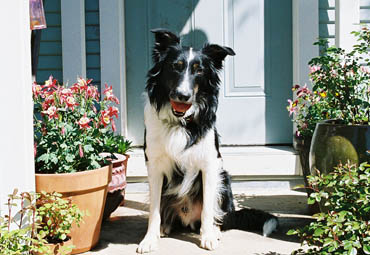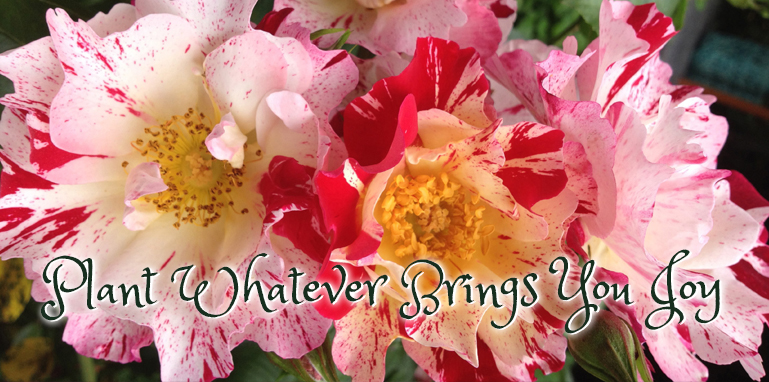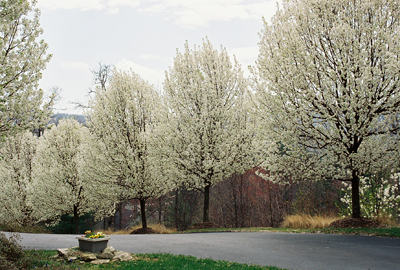OK, it was almost inevitable I would get to this. I knew I had to tell you all about Conner. How could I not?
So here’s the skinny on Conner.
Peaches and I had traveled across country together from North Carolina to Arizona. It was as far as I could get myself to go, and I could barely manage that. Somehow North Carolina knocked the wind out of my sails. (It must have been the mold, but that is another, soggy, story.) My friend Joanna, who had already made the trek from Appalachia to the desert said, “It’s easy. Just look at a map. It’s a straight line. And then you go left!” I saw this really was true, so I figured I could do that.
I had given notice to all I was leaving. I packed. I rented a truck. I convinced a friend of a friend who had moved to North Carolina from Santa Fe it would be just delightful if he drove back to see all his old friends, now wouldn’t it? And I would pay his way. And he could stay a whole week visiting as I made my way separately in my truck. And while he was whiling away time with old chums, I would arrive in Arizona, find a house, and have it ready for my things when he arrived. Really.
This plan allowed me approximately three days of time to find a house upon arrival. I went for it. God bless little Peaches’ heart. She helped me manuever those Southern states, finding suitable hotels at night and thank the Lord the weather held all the way across. When we saw the first mesas in New Mexico
I burst into tears and told her, “We’re home, Peaches. We are home.”
I followed my inner voice that led me to the perfect realtor, who found me the
perfect house in record time. I was literally signing a lease agreement when my cellphone rang and my driver said, “I’m here. Where do you want your stuff?”
And that was that.
So there we were in the desert for the first time and it did not take long at all for me to spot an ad for Border Collie puppies (with a photo, of course) on the
bulletin board of the local pet shop. I knew immediately I was going to get one. So I rang the woman and arranged to go to a ranch not far from our home.
We drove through a big iron gate and past a couple of big open horse corrals
and parked. An attractive, sporty woman with a big smile welcomed us and
ushered us into a barn where a large pen held a litter of adorable pups. Most were spoken for. Two were left. Hmmmm. One seemed really big. One seemed really shy. Peaches was not fond of either. Someone suggested I let her “smell its bottom” and sure enough, this intrigued her more. One down. We came back a couple of times over the next week and hung out with the puppies and I spoke up for the one that seemed more shy. He was released to us when he was seven weeks old, a bit young, but things in the desert can slide, and that’s how that turned out. He was my third Border Collie, my first male and not like any dog I’d ever had. For one thing, he had a WILD eye. I mean it. And that’s the best description. And it came up whenever things were not exactly going as he planned. Uh-oh.
Then there was the little thing about evenings. He would simply not settle down.
Quite the opposite. I would put him in a crate and he would promptly begin barking really really loudly and rocking the crate back and forth to the point of
nearly tipping. I did not know what to do. I just coped.
I had erected a sturdy free-standing puppy corral for him in the kitchen. Imagine my surprise when I entered the room and he had scaled a four foot fence and was just reaching for the table.
Then there was the innocent dove incident, and that’s all I’m going to say about that. And one of Grandma’s chair legs got resculpted.
On top of the mishaps I was doing my utmost to adjust to having a small puppy in an environment where owls and coyotes routinely snatch and eat small dogs and cats. For real. Quite a new consideration. I hung mosquito netting from the back patio that blew in the wind to discourage large owls, and hung extra rope across the back fence, creating the illusion for the many coyotes that passed through the wash that the fence was higher than they might be inclined to jump. But no guarantees. Fortunately Peaches became an obliging mom, saint that she was, and saw over him, allowing him to chew on her ruff and growl and pounce with not a moment of impatience.
Still, obedience seemed out of the question with this dog, who proceeded to rip up my Texas sage bushes, my bougainvillea, my (well, you name it). Nothing was safe. I was on new territory. Eventually I hit my limit and put him in the truck and drove to the breeder’s ranch in tears. “I can’t do this!” I wailed. They calmed me and assured me they would find a new home for my Conner and I drove the truck home both relieved and sad.
The next morning at 7:00AM I was driving back up the ranch drive to get my boy back. They just smiled and handed him back over. The breeder’s husband said to me, “You know, sometimes we have a colt that is really difficult and we just have a really hard time with the animal. But there’s something to be said for seeing an animal through. You never know what might evolve.” I tried like heck to take this to heart.
As some of you know, my Peaches left us there in the desert. And then it was just me and Conner to make our way without other doggie support. So it was
he who made the rest of the journey west, back to California.
Does he still bark? He does. Does he still barge through a room so fast he could knock you over (and has?). Yes. Is it Conner who runs at the back door and screeches to a halt marking up the paint on the door? That would be he.
Does he hate motorcycles and skateboards? Yep. Does he bark excitedly each and every time Sadie, the neighbor’s dog, does? You know the answer. Does he micromanage the cats to see they are completely in line, chasing them through the house if they transgress even a smidgeon? Uh-huh.
But now he’s nearly four.

And it is also Conner who is my perfect Bug Man. If I even mutter under my breath the “b” word (as in B-U-G) he’s on it. If you say, “Conner, there is a spider in the bathtub,” it could be midnight and he’d jump in the tub, and eat it. Yes, he eats all bugs that intrude on the house. Border Collies need jobs.
He also monitors the wastepaper baskets. If I leave a teeny bit of anything
in the bottom after emptying, he gently woofs and looks my way and then back to the bottom of the basket informing me I have not really done my job.
Then (not for the squeamish) if either cat does Number Two in her box I have Conner to thank for advising me that this task must be tended to.
He entertains himself by dropping his squeaky toys in my bathwater. Oh, hilarious, just ask him. Or in my plastic tub where I’m putting weeds and
trimmings in the garden. “Throw it, Mom. Can’t you multitask?” He pees on my rosemary, in spite of dozens of admonitions, and will look me straight in the eye while relieving himself, with pure entitlement. (Yes, I wash it off.) He sits full out on my stomach, all fifty pounds of him, when I am still half asleep, to tell me it is 6:00AM and time to Go Play Ball. If I weep at anything at all he hides under the bed. (Maybe it’s a Boy Thing?) He looks guilty at the appropriate times, but can shift gears to playtime in a heartbeat.
But he is gentle and happy with his new playmate Ruby. He is gracious and lets her fetch the ball. He kisses and nudges the kitties and they rub against him in return. He is loyal and protective beyond measure. His inner clock is perfection so I need not ever set a clock for play or meals. He greets all doggie visitors with equal and friendly enthusiasm, viewing each as a potential playmate and a good time.
And he is full of life and he is full of love.
And he is full of life and he is full of love.
And he is full of life and he is full of love.
And what more could be asked of this sweet bad boy?
Posted on November 25th, 2007 by Kathryn
Filed under: Animals | 9 Comments »













